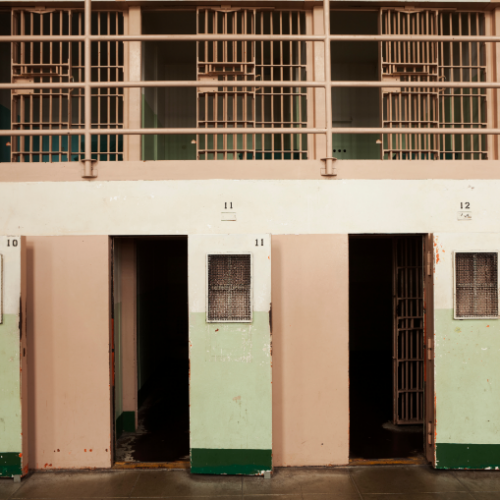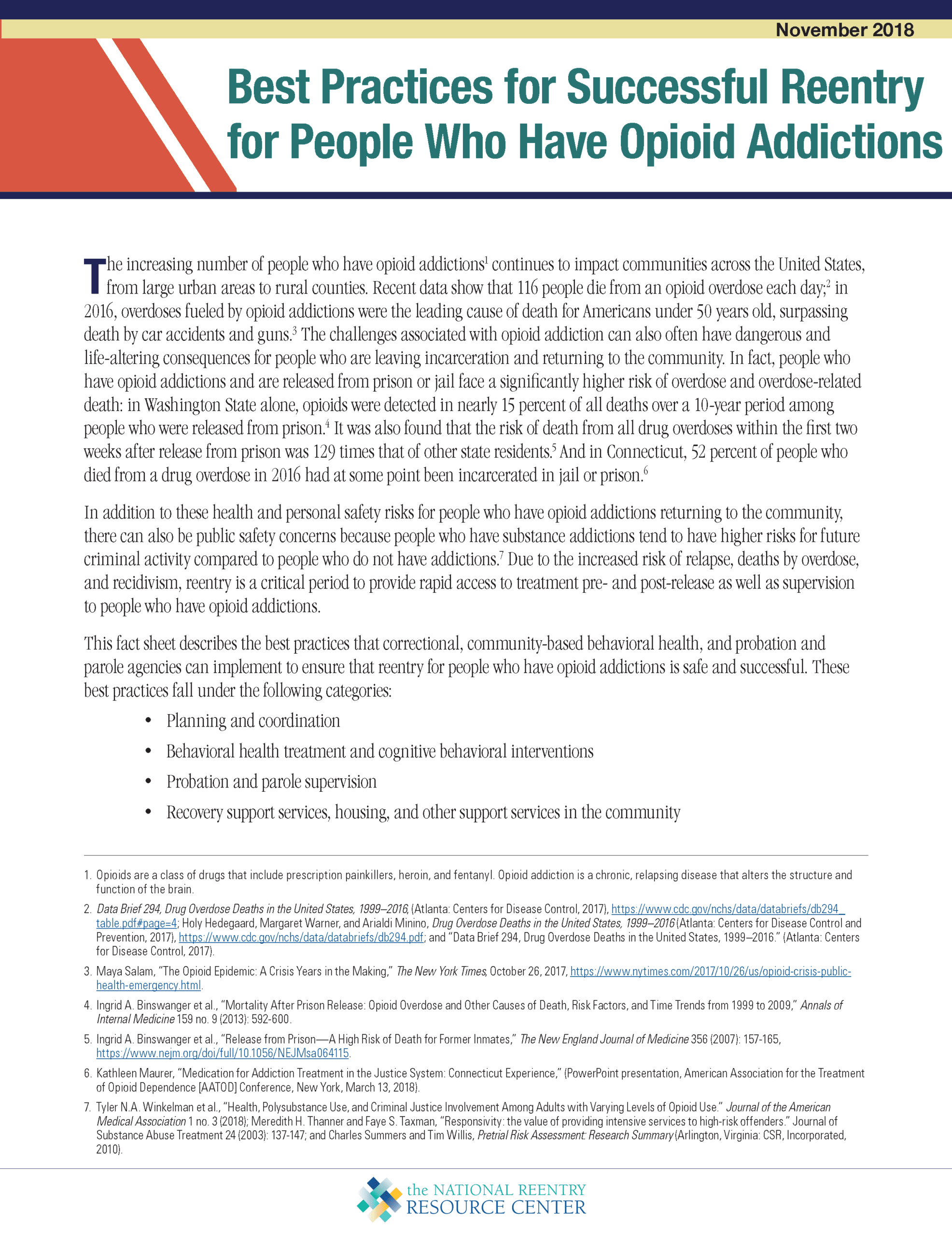Best Practices for Successful Reentry for People Who Have Opioid Addictions
This fact sheet from the National Reentry Resource Center describes the best practices that correctional, community-based behavioral health, and probation and parole agencies can implement within their systems to ensure reentry for people who have opioid addictions is safe and successful.
People who are leaving incarceration face a significantly higher risk of relapse, overdose, and overdose-related death than people in the general public. Because of these odds, reentry is a critical time to provide rapid access to pre- and post-release treatment as well as informed supervision to people who have opioid addictions. This fact sheet from the National Reentry Resource Center describes the best practices that correctional, community-based behavioral health, and probation and parole agencies can implement within their systems to ensure reentry for people who have opioid addictions is safe and successful.
The fact sheet provides an overview of 10 ways the professionals in these agencies can help to ensure success, which fall under the following categories: planning and coordination, behavioral health treatment and cognitive behavioral interventions, probation and parole supervision, and recovery support services.
A positive school experience, where a child feels secure, is essential for their well-being. However, for many children…
Read MoreWhen returning to their communities from criminal justice settings, people with behavioral health needs face barriers in accessing…
Read More Supporting Children of Incarcerated Parents: Reimagining School and Community Collaboration
Supporting Children of Incarcerated Parents: Reimagining School and Community Collaboration
A positive school experience, where a child feels secure, is essential for their well-being. However, for many children with incarcerated parents—one in 14 in the U.S.—school can feel far from safe due to stigma, trauma, and a lack of understanding.
Read More Bridging Communities and Correctional Systems: Q&A with CSG Justice Center Advisory Board Member Commissioner Nicholas Deml
Read More
Bridging Communities and Correctional Systems: Q&A with CSG Justice Center Advisory Board Member Commissioner Nicholas Deml
Read More
 Assigned to the Cloud Crew: The National Incarceration Association’s Hybrid Case Management for People with Behavioral Health Needs
Assigned to the Cloud Crew: The National Incarceration Association’s Hybrid Case Management for People with Behavioral Health Needs
When returning to their communities from criminal justice settings, people with behavioral health needs face barriers in accessing basic needs—including food, housing, employment, transportation, education, clothing, and substance use and mental health services—which increases their risk of experiencing a crisis.
Read More Meet the Medicaid and Corrections Policy Academy Mentor States
Meet the Medicaid and Corrections Policy Academy Mentor States
New Hampshire Department of Corrections Commissioner Helen Hanks presents at the Medicaid and Corrections Policy Academy in-person meeting.
Read More Taking the HEAT Out of Campus Crises: A Proactive Approach to College Safety
Taking the HEAT Out of Campus Crises: A Proactive Approach to College Safety
The sharp rise in school shootings over the past 25 years has led school officials across the U.S. to take a closer look at ways to keep students safe. For Chaffey College in Rancho Cucamonga, California, a tragic incident at a nearby university hit close to home and spurred campus leaders to revisit their own school’s threat assessments and crisis responses.
Read More











